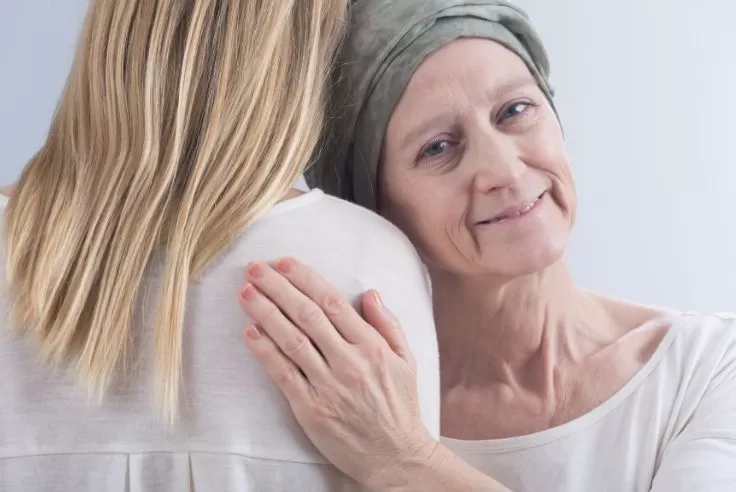Have you ever felt like some of your worries, fears, or struggles might actually be a reflection of something much older—maybe even something passed down from your parents or grandparents?
You’re not alone. Generational pain is a real thing, and it can affect us emotionally and physically in ways we don’t always understand.
Many of us hear stories growing up about our families’ tough times—the struggles, hardships, and challenges they faced. Those stories shape how we think, feel, and even react to stress.
Just because you inherited some of this pain doesn’t mean you’re stuck with it. There are ways to release these emotional and physical burdens and start healing.
Let’s dive into generational pain and how we can free ourselves from its grip.
What is Generational Pain?
Generational pain, also known as generational trauma or inherited trauma, is the emotional and sometimes physical pain that gets passed down from one generation to the next. It can come from experiences your ancestors went through, like poverty, war, loss, discrimination, or other significant hardships. Even though you didn’t directly go through these experiences, their impact can still show up in your life in subtle ways.
For example, if your grandparents lived through a war or economic hardship, they might have developed a mindset of scarcity and fear. That mindset might have influenced how they raised your parents, who then passed on similar feelings of worry and insecurity to you. And without even realizing it, you could find yourself struggling with anxiety or a fear of losing control, not knowing that these feelings might have roots in the past.
How Generational Pain Affects Us
Generational pain can show up in our lives in different ways, often without us even realizing it.
1. Emotional Patterns
You might notice feelings of anxiety, guilt, or sadness that don’t seem to have a clear cause. These emotions can feel like they come out of nowhere, and you might struggle to understand why they keep showing up.
2. Physical Symptoms
Stress can manifest physically in our bodies, leading to issues like headaches, digestive problems, or chronic tension. Even if the source of the stress isn’t obvious, these physical signs might be your body’s way of carrying the burden of past generations.
3. Repeating Behaviors
Generational pain often shows up in the form of unhealthy behaviors or habits that we can’t seem to break. This might mean constantly doubting yourself, being overly self-critical, or repeating patterns that hold you back from growing.
4. Unspoken Family Beliefs
Many families pass down unspoken rules or beliefs about how to handle life, emotions, or challenges. These can limit how we express ourselves or approach situations, even if those old ways of thinking no longer fit in today’s world.
5. Fear of Change
Generational pain can make you fearful of taking risks or stepping outside your comfort zone. It creates a hesitation that keeps you from trying new things or pursuing goals because of a deep-seated fear of failure or disappointment.
Breaking Generational Trauma
1. Acknowledge the Pain
This might seem obvious, but the first step is often the hardest—acknowledging that the pain you’re feeling might not be all yours. It’s okay to admit that some of the stress, anxiety, or self-doubt you experience could be influenced by your family’s past. Reflect on your feelings and ask yourself, “Could some of this be connected to my family’s story?”
2. Talk to Your Family
It’s time to have some real, open conversations with your family members. Ask about their experiences, their struggles, and what they went through in life. Sometimes, knowing the “why” behind their behavior or mindset can make things click for you. You might learn that your grandmother’s constant worry or your dad’s strictness was rooted in their own challenges and fears. Understanding their story helps you see where your patterns come from.
3. Be Kind to Yourself
When you catch yourself in a negative thought loop or feeling overwhelmed, pause and remind yourself to be gentle. We often get mad at ourselves for feeling stressed or anxious, but it’s important to know that this pain isn’t entirely your fault. Speak to yourself the way you would to a friend—encouraging and supportive.
4. Practice Mindfulness
Mindfulness doesn’t have to be complicated. It’s just about paying attention to how you feel in the moment. When you notice old patterns creeping up—like feeling unworthy or overly stressed—try taking a few deep breaths and grounding yourself. This helps you hit the pause button on automatic reactions and gives you the space to choose a different, healthier response.
5. Rewrite Your Story
You have the power to change how you react to life. Start by identifying one habit or mindset you want to shift. For example, if you tend to expect the worst in every situation (because that’s what you grew up around), practice looking for something positive instead. Even a small change in your perspective can help you break free from those old patterns.
6. Set Boundaries
Sometimes, healing means putting some distance between yourself and the patterns that don’t serve you. This could mean limiting time with people who trigger these old wounds or setting clear boundaries in conversations that make you uncomfortable. It will help you protect your peace of mind while you heal.
7. Seek Support
If the pain feels too heavy to handle on your own, consider talking to a therapist like Jacqueline Kane who specializes in healing generational trauma. Jacqueline’s FREE Ancestral Energy Clearing Meditation can help you meet your true authentic self and leadership potential, and heal physical pain.
Why Healing Generational Pain Matters
Healing generational pain isn’t just about feeling better for yourself—it’s also about breaking the cycle for future generations. When you take steps to heal, you’re not only freeing yourself from emotional and physical burdens but also making it less likely that these patterns will be passed down to your children and their children.
To Sum Up…
Generational pain is just one part of your story, but it doesn’t have to define you.
By recognizing it, understanding it, and taking steps to let it go, you can create a life that feels lighter and more in your control.
Healing takes time, but every little step you take to release this pain brings you closer to a brighter future—for yourself and for those who come after you.





